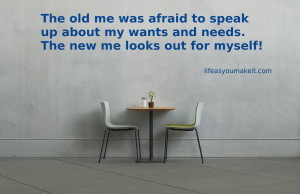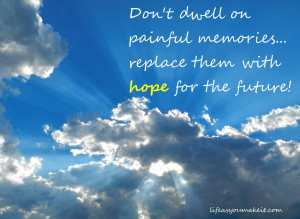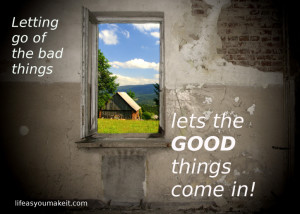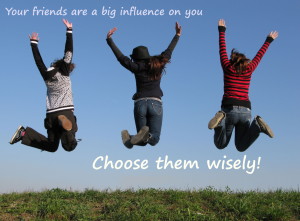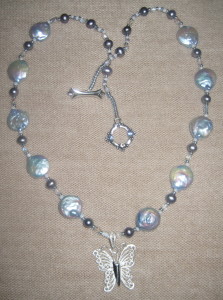You can’t make choices that you don’t know you have…yet
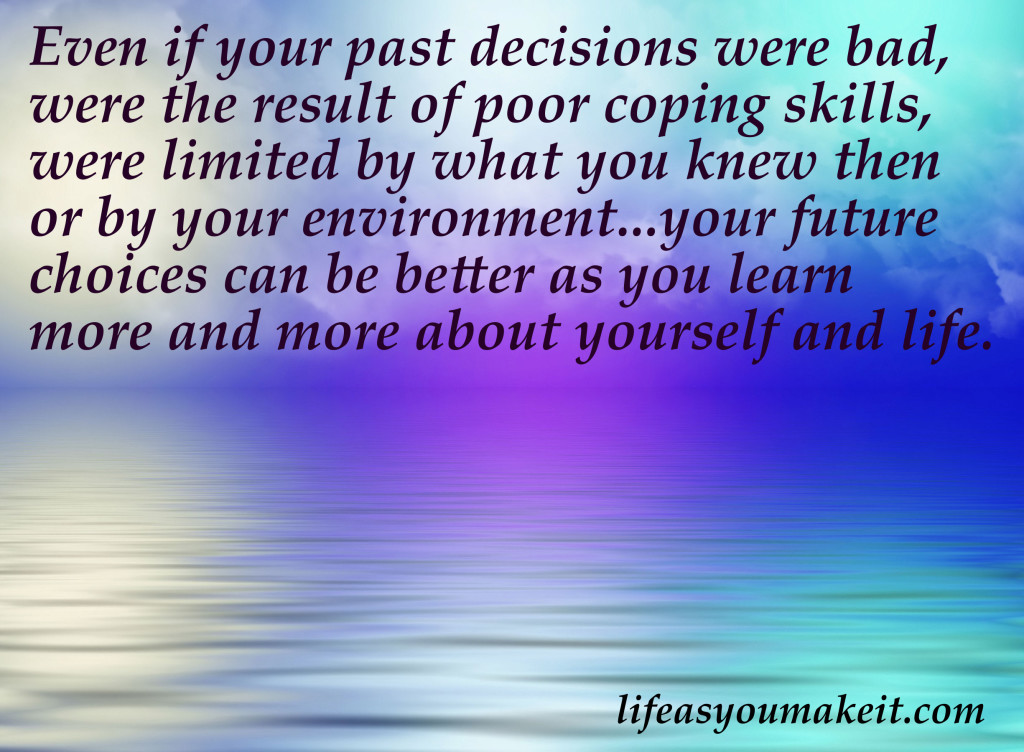 There’s a meme going around on Facebook right now that says we are all responsible for our own choices. I don’t like it and I’ll tell you why! (I also wrote another post about it–specifically related to all the ways abusive childhoods can affect us for life.) While there is an element of truth to this meme, it ignores all the gray areas in life and the reality that not everyone has the same choices available to them or knows what all of their choices are. This meme is too black and white!
There’s a meme going around on Facebook right now that says we are all responsible for our own choices. I don’t like it and I’ll tell you why! (I also wrote another post about it–specifically related to all the ways abusive childhoods can affect us for life.) While there is an element of truth to this meme, it ignores all the gray areas in life and the reality that not everyone has the same choices available to them or knows what all of their choices are. This meme is too black and white!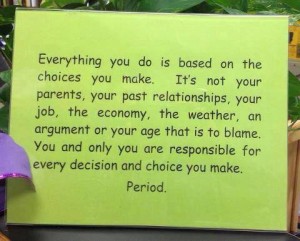
I’m sure this meme is nice and simple for people who grew up with great social skills, a healthy family, and perfect emotional intelligence…which is not most of us. The truth is, we all come from a variety of backgrounds and experiences, and what we can choose, or what we currently know we can choose, is biased towards our own realities. We see life through our own eyes, and not those of someone else.
For people who have struggled in life thanks to poverty in childhood or poor social support systems, we often feel our choices are limited. Sometimes an abused wife with no job or career skills might feel like she has no choice but to stay in a violent marriage. Sometimes the only child of sickly elderly parents might feel that he obligated to put his dreams on hold to take care of his parents. For people like me who used to be doormats, it never truly crossed my mind that I could say “no” to people and not feel guilty.
Sometimes people do stupid things because they haven’t seen good role models and have no idea what the “right” way to live is. Sometimes people make bad choices out of desperation because they think they have no other way to get through a difficult time. Sometimes people make poor decisions because they have misleading information. There are all kinds of reasons that people learn to live the way they do.
The life wisdom that some people gain at an early age might not come to another person until later in life, if at all. We can look at people’s situations and judge them and say well they “should have” done this or that, but we are only looking at their choices as WE see them instead of as THEY see them.
For those of us who were raised in abusive homes and repeated the cycle by marrying abusers, sometimes it never crossed our minds that maybe life wasn’t meant to be so miserable. Some of us felt like we were obliged to compromise and put up with abuse because that’s just the way it was. Some of us live our lives for years before we finally have a light bulb moment and realize we have other choices that we’d never before realized were available. Maybe to others, that was obvious from the start, but for us, we have to travel our on paths to learn about life. How could we make choices we didn’t know we had?
Only when we realize that we have other choices, can we make those choices!
None of us are born educated, wise, and all-knowing. We make the best choices that we know are available and possible for us. And sometimes they are not as good as the choices that other people on different paths make. And that’s okay. We cannot know what we have not yet learned!
This meme insinuates that if bad things happen to us, it’s all our fault for making bad choices. It’s not so simple since our lives are colored by everything that has happened to us and it’s impossible to escape our past influences. Let’s have empathy for ourselves and others who aren’t always perfect.

